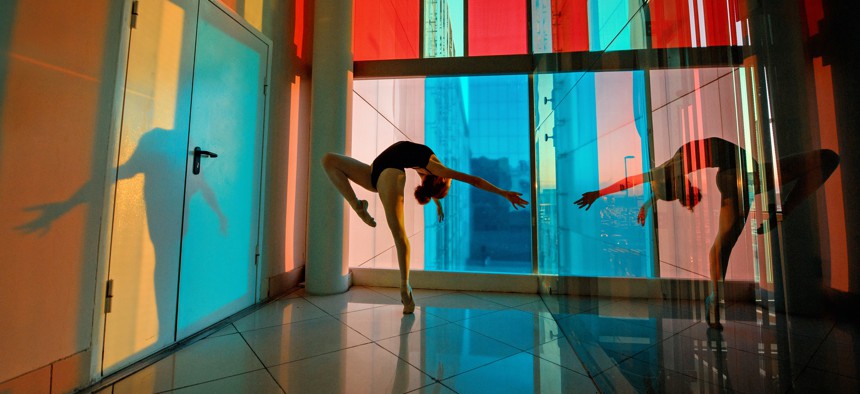Real estate costs devastate NYC arts organizations

Female dancer in colorful studio in city. Shutterstock
Fully 11 percent of arts and culture organizations in New York City – particularly those with smaller budgets and in the performing arts – don’t think they will survive the COVID-19 crisis, according to a report created by SMU DataArts for the city Department of Cultural Affairs. And for many groups, the high cost of rent in the city remains an enormous obstacle on the path to survival.
Shut out of the city’s Phase 4 of reopening, museums, theaters, studios and other arts organizations have little to no way of bringing in revenue. Lack of earned income from events, declining charitable donations, and cuts to city funds bode ill for most. And while cutting staff may stave off some of the financial pain – more 15,000 arts workers have been laid off or furloughed so far, according to the report – fixed costs such as rent are difficult to adjust.
“The rent they charge us, which is under-market, is still too much for us given that we cannot use the space,” said Sheila Lewandowski, executive director of the Chocolate Factory Theater. And while the theater owns its own building, it can’t use that space because it isn’t renovated.
A survey of nearly 300 dance institutions in the New York metropolitan area from Dance/NYC in mid-May found that most expect to lose one-third of their annual operating budgets. For the smallest organizations surveyed, they expect to see losses amounting to 82% of their annual operating budgets.
“When you look at the lion’s share of the sector, you’re talking about the small local studio, you’re talking about folks that didn’t have either big cash reserves or very sophisticated access to technical information,” said Alejandra Duque Cifuentes, executive director of Dance/NYC, which advocates on behalf of the dance community.
Legislation is being proposed to offer relief to commercial renters for the duration of the pandemic. For example, a bill proposed by state Sen. Brad Hoylman and Assembly Member Harvey Epstein would protect small businesses and nonprofits that haven’t been able to make rent payments for the duration of the pandemic. Nonprofit New York has endorsed the bill, though it recommended the provisions be expanded to include larger nonprofits with more than 100 employees.
But without some help for both institutions and individual artists, many fear New York City will lose its robust arts and culture presence. “The concern now is that members of the cultural community – they were in danger of being priced out already, but now they’re really going to be priced out because they lost their jobs,” said Elizabeth Bennett, executive director of Staten Island Arts.
